Super Mario Galaxy
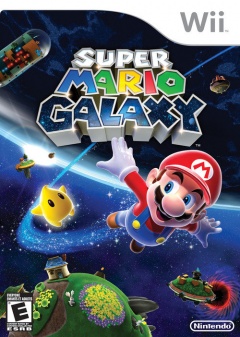 I'll be the first to admit this review is rather ill-timed, heck, I've
already published my full review of Super Mario Galaxy 1, and Nate's
first hour of Super Mario Galaxy 2 is already up! But I had this
stored up for the right moment, and unfortunately that right moment
came and went a few weeks ago, so the new right moment is now. Better
late than never.
I'll be the first to admit this review is rather ill-timed, heck, I've
already published my full review of Super Mario Galaxy 1, and Nate's
first hour of Super Mario Galaxy 2 is already up! But I had this
stored up for the right moment, and unfortunately that right moment
came and went a few weeks ago, so the new right moment is now. Better
late than never.
I loved Super Mario Galaxy, what an awesome
game. I didn't even have a chance to really play it until this year,
but it still astounded me, the only game on the Wii that has. I
already talked about why I love the game, but here's how I started
loving the game. My impressions of the game's first hour, at the time
it had a lot of work to do on me. I worshiped Super Mario 64 in my
early teens but could never get into Super Mario Sunshine. The game
sat on my shelf for months until I finally returned it to my friend.
So here was another 3D Mario game that I didn't really care about
playing, but of course I was going to give it a shot when the
opportunity arose.
So sorry this is late, but there is always
someone out there who hasn't been exposed to Super Mario Galaxy, and
here is it's first hour review, just for you.
Nintendo Power #37 - My First Video Game Magazine
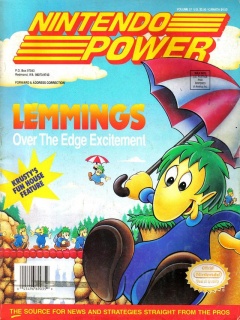 Way back in May of 1992 for my eighth birthday, my cousins presented me with a subscription Nintendo Power. I had never received anything as cool as my own magazine in the mail before, so when the June '92 issue arrived a few days later I was in heaven. It would be another two years until I bought my own Super Nintendo, but my NES and new Nintendo Power subscription were enough for me.
Way back in May of 1992 for my eighth birthday, my cousins presented me with a subscription Nintendo Power. I had never received anything as cool as my own magazine in the mail before, so when the June '92 issue arrived a few days later I was in heaven. It would be another two years until I bought my own Super Nintendo, but my NES and new Nintendo Power subscription were enough for me.
I kicked off my new Magazine Nostalgia section a few weeks back with my own appearance in Nintendo Power #85, but I have a ton more to discuss. I recently semi-organized all my video game magazines of which I have hundreds, spanning from Nintendo Power, EGM, Game Players, and more. I know I won't ever be able to discuss them all, but I'd like to pretend to try, so why not cover the first one I ever owned?
Do you have any interesting magazine stories? Let us know in the comments section!
The QTE plague: What hath God of War wrought?
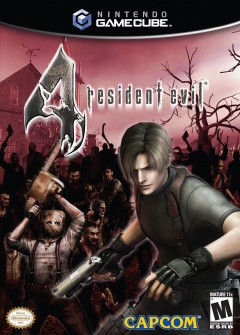 Quick Time Events. So many games have used them to some extent in the
last five years that just about every gamer has an opinion on them.
Mine is that they are the worst gameplay gimmick to take the industry by
storm in a long time, and I wouldn't mind seeing them all packed into a
burlap sack filled with leeches and thrown into the depths of a
volcano. They're tacky, they're unintuitive, and their attempts to
engage players in cinematic animations backfire and break the sense of
immersion one has with a game. And unfortunately for me, they're just
about everywhere these days.
Quick Time Events. So many games have used them to some extent in the
last five years that just about every gamer has an opinion on them.
Mine is that they are the worst gameplay gimmick to take the industry by
storm in a long time, and I wouldn't mind seeing them all packed into a
burlap sack filled with leeches and thrown into the depths of a
volcano. They're tacky, they're unintuitive, and their attempts to
engage players in cinematic animations backfire and break the sense of
immersion one has with a game. And unfortunately for me, they're just
about everywhere these days.
Two behemoths let loose in early 2005 can be thanked -- or blamed -- for the salvo of games that have featured QTEs in the last five years. The first, with a January 11 release date, was Resident Evil 4. The game was extremely well-received: it won many Game of the Year awards, offered a fresh take on the aging Resident Evil formula, and gave Gamecube owners a third-party exclusive worth bragging about. The other member of the gruesome twosome that brought us into the era of QTEs is known as God of War. Released just two months after Resident Evil 4, the game received just as many accolades and turned heads back to the PS2 as quickly as they'd been lost to the Gamecube's horror hit. Is it any wonder that the industry went in the direction it did when two such monumental successes as these both prominently featured a relatively unused gameplay gimmick?
Today we'll take a look at how the smart use of QTEs helped put these two games on the map, and watch a few examples of QTEs gone wrong. And trust me, there was a huge pool of resources for the latter.
Perfect Dark
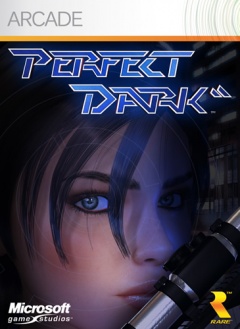 Sometimes, nostalgia has the habit of biting back. Hard. Ten years ago,
Perfect Dark was released on the Nintendo 64,
and along with The Legend of
Zelda: Majora's Mask, capped off a great system by pushing it way
past its limits. I gobbled this game up when it was released by
throwing parties in my parent's basement and putting off getting my
driver's license for another month. GoldenEye 007 was a great first-person
shooter, but we were ready for some Perfect Dark.
Sometimes, nostalgia has the habit of biting back. Hard. Ten years ago,
Perfect Dark was released on the Nintendo 64,
and along with The Legend of
Zelda: Majora's Mask, capped off a great system by pushing it way
past its limits. I gobbled this game up when it was released by
throwing parties in my parent's basement and putting off getting my
driver's license for another month. GoldenEye 007 was a great first-person
shooter, but we were ready for some Perfect Dark.
Ten years
later, and Perfect
Dark is ported to Xbox Live Arcade. I was a bit worried: how would a
pre-Halo first-person shooter play against its modern day brethren? In
my opinion, while GoldenEye was the console shooter breakout hit, Halo
had set the standard for how they should actually play. Its control
scheme is still used to this day, and imagining myself strafing with the
C-buttons gives me the shivers.
For only $10 though, it was a
hard bargain to pass up. Here was a game that I coughed up $59.99 + tax
before I even had a job, I could easily hand over 800 Microsoft
Points for a trip down memory lane. My friend Jim also bought the game,
and we decided to take the journey together, playing through the single
player campaign via online co-op (imagine doing that ten years ago on
the Nintendo 64!). While we had both played the original, I was the
more die-hard fan and had pored countless hours into my multiplayer
character. We started up, with him playing as the lovely Joanna and me
as the blonde no-named sister.
Memorable Ideas from Unforgettable Games - New Game Plus
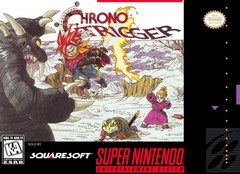 My apologies to Nate in advance for totally stealing his Memorable Ideas theme and twisting it from forgettable games into something far less interesting, but I have to write about this.
My apologies to Nate in advance for totally stealing his Memorable Ideas theme and twisting it from forgettable games into something far less interesting, but I have to write about this.
New Game Plus is probably one of the coolest, most obvious, and underused features in video games today. There is no better way to get me to immediately replay your game than to give me every single item, weapon, magic, and point of experience that I finished the game with at the start of the my next playthrough. Yes, it makes everything Win Button easy, but it is so very satisfying returning to the boss the gave you so much trouble the first time and one-shotting him into oblivion. New Game Plus should be a required feature of every RPG and adventure game.
For the unaware, New Game Plus means starting the game over but loading your characters from when you last beat it. You generally retain most non-story items and weapons, and keep your existing level and stats. It's generally a nice reward for conquering a game, but as we'll see, can also be used for a variety of reasons.
Super Mario Galaxy 2
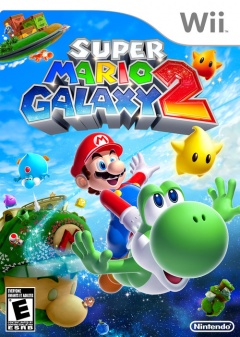 For all its talk of innovation this generation, Nintendo seems to be
falling back on its old tricks like never before. Alongside its Wii
Sports Resort and Wii Fit Plus, Nintendo announced two games at E3 2009
that surprised the videogame community: New Super Mario Bros Wii and
Super Mario Galaxy 2.
For all its talk of innovation this generation, Nintendo seems to be
falling back on its old tricks like never before. Alongside its Wii
Sports Resort and Wii Fit Plus, Nintendo announced two games at E3 2009
that surprised the videogame community: New Super Mario Bros Wii and
Super Mario Galaxy 2.
What's that I hear you say? "Big deal! How
are new Mario games a surprise?" Well, New Super Mario Bros. Wii is the
first 2D Mario game to hit a console since Super Mario World, just under
nineteen years ago. And Super Mario Galaxy 2 is the first direct sequel to a
Mario game since Super Mario Bros. 3, just over twenty years ago.
Nintendo may be feeding casual gamers with one hand, but it's got plenty
of snacks for Mario lovers in the other.
New Super Mario Bros. Wii was set loose upon the world last November, and continues to sell like Wii-branded hotcakes well into this year. But Nintendo held Super Mario Galaxy 2 off until this summer, ensuring that they have a full three years to create bold new worlds for Mario to explore. Is the Galaxy worth revisiting, or was one trip to the cosmos enough?
Resident Evil
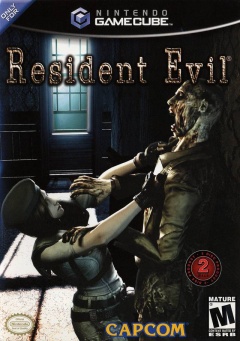 Resident Evil is the original survival horror game. It didn't invent horror, but it definitely laid some groundwork as far as the genre went in video games. It was originally released in 1996 for the Sony PlayStation. In 2002, it was released as a remake for the GameCube in a surprising deal that had the series on Nintendo's system and eventually led to the stellar Resident Evil 4. It is the GameCube REmake (get it, RE stands for Resident Evil? Ah, nevermind) that I will be playing.
Resident Evil is the original survival horror game. It didn't invent horror, but it definitely laid some groundwork as far as the genre went in video games. It was originally released in 1996 for the Sony PlayStation. In 2002, it was released as a remake for the GameCube in a surprising deal that had the series on Nintendo's system and eventually led to the stellar Resident Evil 4. It is the GameCube REmake (get it, RE stands for Resident Evil? Ah, nevermind) that I will be playing.
So what I want to know is this: Is this game good, and is this game scary? I've played Resident Evil 4, and had a few good jumps, but overall it was just a moody action game (arguably becoming the basis of the modern third-person shooter). The original (and remake) had a lot more focus on puzzle solving and exploring, and less on fighting.
I'm going all out with this one. I'm playing at night, while everyone else is sleeping, with the lights off. Let's see if we can get a good scare out of this.
Memorable Ideas from Forgettable Games - The Level Slider
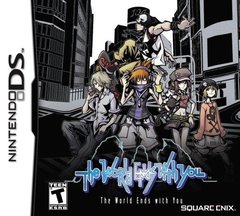 Some games are unforgettable. After forking over our birthday money at K-Mart, we bounce all the way home in the backseat of the station wagon, wrestle the plastic wrap away from the box, gingerly place the game in the system, and steady our feverishly shaking hands with an anaconda grip on the controller. We don't let go for hours. And when the credits roll, we tear up a little, knowing we'll always cherish that first time through.
Some games are unforgettable. After forking over our birthday money at K-Mart, we bounce all the way home in the backseat of the station wagon, wrestle the plastic wrap away from the box, gingerly place the game in the system, and steady our feverishly shaking hands with an anaconda grip on the controller. We don't let go for hours. And when the credits roll, we tear up a little, knowing we'll always cherish that first time through.
And then there are games that are largely forgotten weeks after release. Niche appeal, scathing reviews, or even just lack of hype can doom a game to obscurity and the Target bargain bin. But even these games deserve a second look...sometimes. Every once in a while, a kernel of brilliance can be found within these steaming piles of mediocrity. The purpose of this feature is to sift out some of these conceptual gems and put them under the microscope.
Today's trip takes us all the way back to 2008, when a game called The World Ends With You dared to eschew every gaming convention it could think of, for better or worse. In the "better" column resides one particularly inspired idea, the Level Slider.
3D Dot Game Heroes
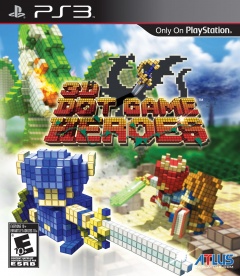 Retro revivals are all the rage nowadays. In the era of the
low-budget downloadable games market, everybody's digging into their
past to give a
classic a fresh coat of paint or create a sequel with
old-school flare. The former provides a proven template onto which
shiny new graphics can be applied, while the latter guarantees interest
from lifelong fans who long to experience that same magic like it were
new again.
Retro revivals are all the rage nowadays. In the era of the
low-budget downloadable games market, everybody's digging into their
past to give a
classic a fresh coat of paint or create a sequel with
old-school flare. The former provides a proven template onto which
shiny new graphics can be applied, while the latter guarantees interest
from lifelong fans who long to experience that same magic like it were
new again.
3D Dot Game Heroes is a retro-styled installment in Nintendo's famed Legend of Zelda series, albeit one that was developed by a different company and published for a different company's hardware, and it would be slapped silly with copyright infringement lawsuits if the word "Zelda" appeared anywhere in it. From Software, known for its Armored Core series and the recent hit Demon's Souls, doesn't just take a page from Nintendo's book: the book gets Xeroxed from cover to cover. Almost everything in 3D Dot Game Heroes feels like it was stolen from The Legend of Zelda: A Link to the Past, from the plot to the controls to the stage designs to the items and everything in between.
We tend to view knockoffs as inferior, bitter, envious versions of the genuine article. Does 3D Dot Game Heroes lack the essence of its explosively-popular inspiration, or does it manage to work a little magic of its own?
Onimusha: The Best Series Everyone Already Forgot About
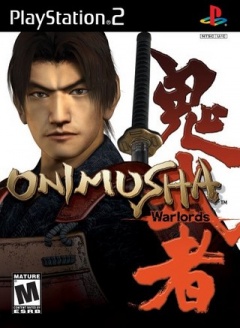 After a flurry of six games in just five years, there hasn't been another Onimusha game since March 2006. I understand that the series always played second fiddle to Capcom's other series, Devil May Cry, but man, Onimusha always had an awesome combination of historical inaccuracy and great hack-and-slash action.
After a flurry of six games in just five years, there hasn't been another Onimusha game since March 2006. I understand that the series always played second fiddle to Capcom's other series, Devil May Cry, but man, Onimusha always had an awesome combination of historical inaccuracy and great hack-and-slash action.
I played and loved the four main games in the series, even the one that takes place in France with Jean Reno. The first time I ever played an Onimusha game was at my uncle's house; the only thing I knew about Onimusha: Warlords was that it played like Resident Evil and was rated Mature. This seemed to indicate to me that the game would be scary or something, but what it turned out to be was simply a blast to play. Fast action, great puzzles, a storyline with famous Japanese figureheads that I recognized, and more gore than scare. My kind of game.
